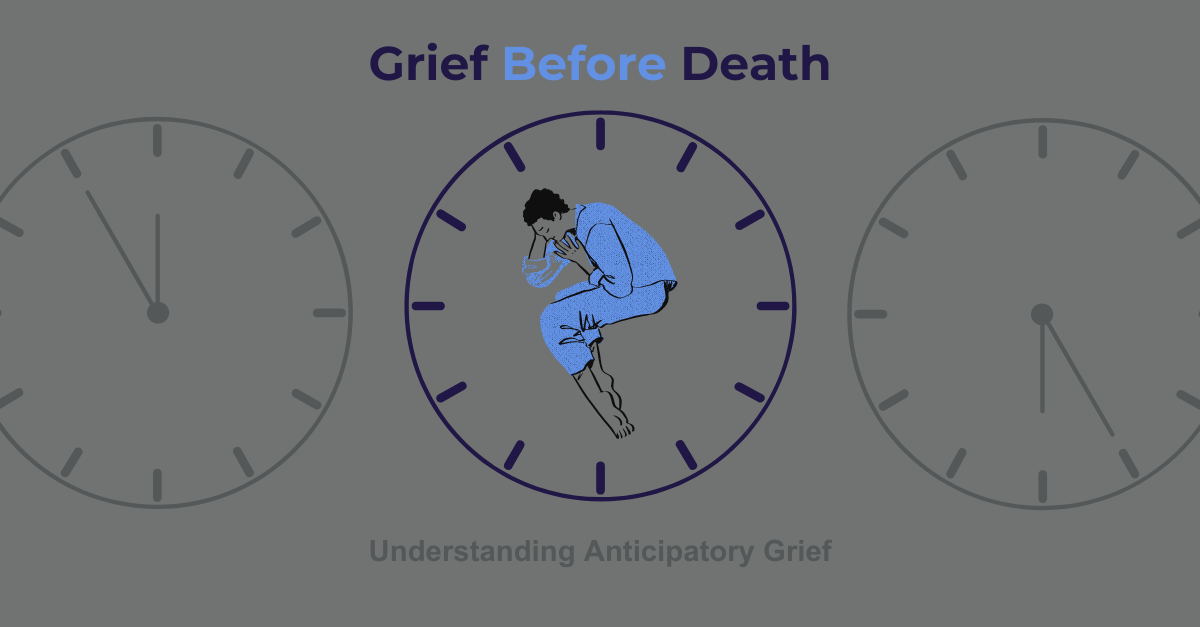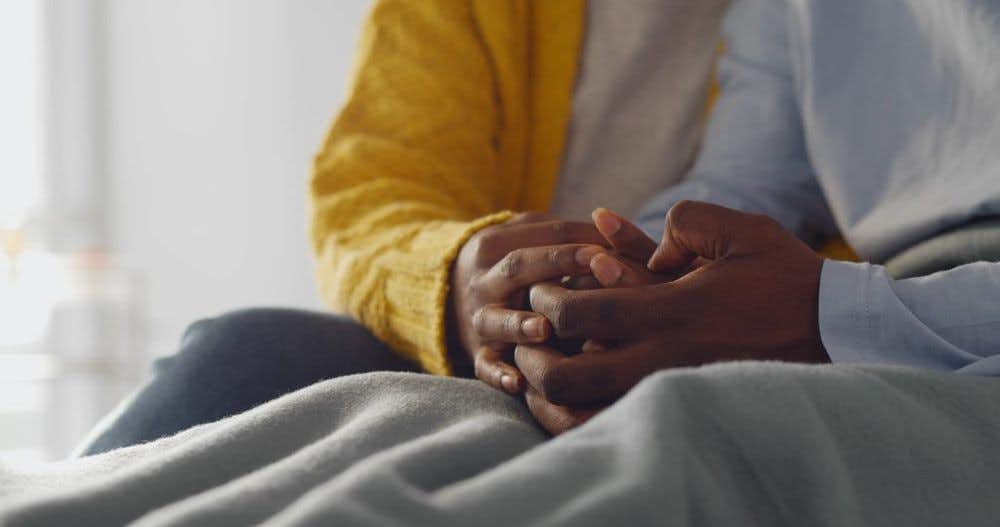August 30th, 2022

In observance of Grief Awareness Day, August 30, it is important to ensure people have information to assist in the grieving process.
Angie Cartwright is the founder of Grief Awareness Day after experiencing many losses in her life. Learning the hard way that grievers are often misunderstood, Angie is committed to helping change how our culture understands and views grief.
Swiss psychiatrist Elizabeth Kübler-Ross, who introduced the five stages of grief model, created the term anticipatory grief through her research and treatment of grief. Anticipatory grief occurs before the actual loss of a loved one and is not often talked about.

Anticipatory grief occurs before the death of a loved one or prior to one's own death, be it due to the diagnosis of a terminal illness or the start of hospice care. Some losses that are experienced during anticipatory grief can include the fear losing a companion, changing roles in a relationship, fear of financial security, and losing dreams of the future. One way to illustrate anticipatory grief and conventional grief is to view anticipatory grief as grieving forward at the incoming loss and conventional grief is grieving backward due to the loss already having occurred.
Anticipatory grief and conventional grief differ in that you may experience more anger, lose the feeling of emotional control, and atypical grief responses that may come from imagining life without your loved one. You may feel unexpected emotions because there can be a feeling of being between hope and letting go.
Some find this kind of grief to be positive or empowering as it can provide the opportunity for growth. It can help with closure and forgiveness prior to losing your loved one. It does not necessarily make grief after death easier, but can allow you to feel settled knowing you can process the loss.
There are phases of anticipatory grief that you may encounter, just remember that not everyone will go through these in the same order or in the same way.
Phase 1 – Shock of finding out about the loss
Phase 2 – Denying the reality of the future loss
Phase 3 – Eventual acceptance

Again, keep in mind there is no right way to go through the grieving process. You may encounter some of the following emotions, all of them or even none of them:

As you encounter your feelings, you may also be dealing with caregivers or hospice to assist you in the process. It is acceptable and encouraged to allow yourself to take time to recharge and care for yourself during this time. Utilizing the assistance of others is one way to get a break from all the emotions and challenges of taking care of your loved one. Finding activities that are relaxing or energizing may be what you need to be able to manage all the emotions you are experiencing.
Below is a list of healthy strategies that you can use to help you cope with anticipatory grief:
As stated above, there is no right way through the grieving process. Grieving is as individual as we are as people.
This blog was written by Michelle Augoustatos, LCSW, who is currently leading a grief group that meets every Monday from 5 pm to 6 pm. This group is offered via telehealth and provides a safe space to learn about and help deal with the grieving process. Follow the link below if you'd like to learn more on how to develop and use coping skills to help alleviate your symptoms of grief.
Grief Group (Mondays @ 5pm) - Clarity Clinic
At Clarity Clinic, we have highly trained staff who specialize in therapy and psychiatry services. To learn more about how we can support your mental health, call Clarity Clinic on (312) 815-9660 or schedule an appointment today.

Our Services
Virtual/Online CarePHP and IOPAdult PsychiatryChild & Adolescent PsychiatryAdult TherapyChild & Adolescent TherapyCouples CounselingFamily TherapyGroup TherapyPsychological TestingTranscranial Magnetic Stimulation (TMS)Resources
Refer a PatientCareersClinical Training OpportunitiesOur ProvidersFree Mental Health TestsCommonly Prescribed MedicationsLocationsBlogIn The NewsClarity Through CharityClarity for AllQuick Links
Patient PortalFAQsAccepted InsurancesContact us